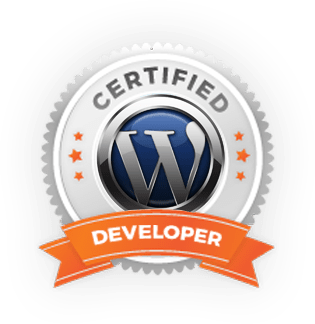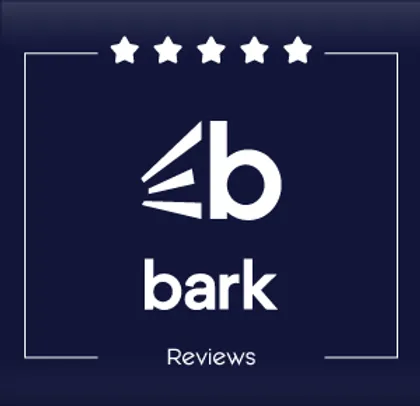In today’s digital landscape, having a robust online presence is crucial for any business or personal brand. *WordPress* has emerged as one of the most popular platforms for creating websites, thanks to its user-friendly interface and extensive customization options. However, to truly harness the power of this platform, it’s essential to understand the nuances of WordPress SEO optimization.
SEO, or Search Engine Optimization, is the practice of enhancing your website to increase its visibility on search engines like Google. Effective SEO strategies can drive more traffic to your site, improve user engagement, and ultimately boost your conversion rates. For WordPress users, optimizing your site for SEO involves a combination of technical tweaks, content strategies, and ongoing maintenance.
If you’re new to SEO, you might feel overwhelmed by the myriad of techniques and tools available. But don’t worry—this guide will walk you through the essential tips for mastering WordPress SEO optimization. From configuring your site settings to leveraging plugins and creating high-quality content, we’ve got you covered.
Ready to take your WordPress site to the next level? Call us today at (817) 213-6090 to learn how SEON Experts can help you maximize your site’s potential.
Conducting Keyword Research Effectively
One of the foundational elements of WordPress SEO optimization is conducting effective keyword research. Keywords are the terms and phrases that users enter into search engines, and identifying the right ones can significantly impact your website’s visibility. Here’s how to get started:
- Understand Your Audience: The first step in keyword research is to understand what your target audience is searching for. Think about the problems they are trying to solve and the questions they might have.
- Use Keyword Research Tools: Tools like Google Keyword Planner, SEMrush, and Ahrefs can help you identify popular keywords in your niche. These tools provide data on search volume, competition, and even suggest related keywords.
- Analyze Competitors: Look at the keywords your competitors are ranking for. This can give you insights into what works in your industry and help you identify gaps that you can exploit.
- Long-Tail Keywords: Don’t just focus on high-volume keywords. Long-tail keywords, which are more specific and less competitive, can be easier to rank for and often attract more targeted traffic.
- Consider Search Intent: Understanding the intent behind a keyword is crucial. Are users looking for information, trying to make a purchase, or simply browsing? Tailor your content to meet their needs.
By effectively conducting keyword research, you lay a strong foundation for your WordPress SEO strategy. This enables you to create content that not only attracts visitors but also engages and converts them.
Optimizing WordPress Website Structure

Optimizing your WordPress website structure is crucial for enhancing your WordPress SEO optimization efforts. A well-organized site not only improves user experience but also makes it easier for search engines to crawl and index your pages. Here are some key strategies:
- Create a Clear Hierarchy: Your website should have a logical structure with a clear hierarchy. This typically includes a homepage, main categories, subcategories, and individual posts or pages. This helps users navigate your site easily and allows search engines to understand the importance of each page.
- Use Breadcrumbs: Breadcrumbs are navigational aids that show users their location within the site. They enhance user experience and provide search engines with additional context about your site’s structure.
- Optimize Permalinks: WordPress allows you to customize your URL structure. Use SEO-friendly permalinks that include keywords and are easy to read. Avoid using generic structures like ‘p=123’ which don’t provide any context.
- Implement Internal Linking: Internal links connect different pages within your website. They help distribute page authority and guide users to related content. Use relevant anchor text to make these links more effective.
- Ensure Mobile-Friendliness: With a significant portion of web traffic coming from mobile devices, it’s essential to have a responsive design. Google’s mobile-first indexing means that mobile-friendliness directly impacts your SEO ranking.
- Speed Up Your Site: Website loading speed is a critical SEO factor. Optimize images, leverage browser caching, and use a content delivery network (CDN) to ensure your site loads quickly.
By focusing on these aspects of your website structure, you can significantly enhance both user experience and search engine rankings. A well-structured site is a cornerstone of effective WordPress SEO optimization, setting the stage for other advanced strategies.
Improving On-Page SEO Elements

Improving on-page SEO elements is essential for achieving optimal WordPress SEO optimization. These elements help search engines understand the content of your pages and determine their relevance to specific search queries. Here are some crucial on-page SEO practices to implement:
- Optimize Title Tags: The title tag is one of the most important on-page SEO elements. Ensure that each page has a unique, descriptive title that includes your primary keyword. Keep it concise and compelling to attract clicks.
- Craft Meta Descriptions: Although meta descriptions don’t directly affect rankings, they influence click-through rates. Write clear, engaging meta descriptions that include your target keywords and accurately describe the content.
- Use Header Tags: Header tags (H1, H2, H3, etc.) structure your content and make it easier for search engines to understand. Use the H1 tag for the main title and H2 or H3 tags for subheadings. Include relevant keywords in these tags.
- Optimize Images: Use descriptive file names and alt text for your images. This not only improves accessibility but also helps search engines index your images. Compress images to reduce loading times and improve site speed.
- Include Keywords Naturally: Integrate your primary and secondary keywords naturally throughout your content. Avoid keyword stuffing, which can lead to penalties. Focus on providing valuable, high-quality information that addresses user intent.
- Enhance Content Readability: Break your content into short paragraphs, use bullet points, and include multimedia elements like images and videos. This makes your content more engaging and easier to read, improving user experience and dwell time.
- Implement Internal and External Links: Linking to other relevant pages on your site (internal links) and reputable external websites (external links) provides context and adds value to your content. It also helps search engines understand your content’s relationship to other pages.
By focusing on these on-page SEO elements, you can create a solid foundation for your WordPress SEO optimization efforts. These practices not only improve your site’s visibility in search engine results but also enhance the overall user experience, driving more traffic and engagement.
Utilizing WordPress SEO Plugins

When it comes to WordPress SEO optimization, utilizing the right SEO plugins can make a significant difference. These tools simplify the optimization process, offering features that help you manage and improve various aspects of your SEO strategy. Here are some essential WordPress SEO plugins to consider:
- Yoast SEO: One of the most popular SEO plugins, Yoast SEO offers a comprehensive suite of tools for optimizing your content. It provides real-time page analysis, keyword optimization, readability checks, and suggestions for improvement. The plugin also helps with technical SEO aspects such as XML sitemaps and breadcrumb navigation.
- All in One SEO Pack: This plugin is another powerful option that covers a wide range of SEO tasks. It includes features like automatic meta tag generation, XML sitemap support, and social media integration. The All in One SEO Pack is user-friendly, making it suitable for both beginners and advanced users.
- Rank Math: Known for its intuitive interface and extensive feature set, Rank Math allows you to optimize your site for search engines easily. It offers a detailed SEO analysis, keyword suggestions, schema markup, and integration with Google Search Console. Rank Math also supports local SEO and WooCommerce SEO, making it versatile for different types of websites.
- SEOPress: SEOPress is a lightweight yet powerful plugin that provides all the essential SEO tools. It includes features like meta descriptions, XML sitemaps, content analysis, and social media previews. SEOPress also offers advanced options for managing redirects and optimizing images.
- The SEO Framework: This plugin focuses on providing a clean, fast, and user-friendly SEO experience. It offers automatic SEO settings, structured data integration, and content performance insights. The SEO Framework is ideal for those who prefer a minimalist approach without compromising on functionality.
By leveraging these WordPress SEO plugins, you can streamline your WordPress SEO optimization efforts and ensure that your site follows best practices. These tools not only save time but also provide valuable insights and recommendations, helping you achieve better search engine rankings and improved online visibility.
Monitoring and Analyzing SEO Performance

The final step in mastering WordPress SEO optimization is to continuously monitor and analyze your SEO performance. This ongoing process helps you understand what strategies are working and where there is room for improvement. Here are some essential methods and tools for monitoring and analyzing your SEO performance:
- Google Analytics: This powerful tool provides comprehensive data on your website traffic, user behavior, and conversion rates. By setting up specific goals and tracking key performance indicators (KPIs), you can gain valuable insights into how visitors interact with your site and which pages perform best.
- Google Search Console: An indispensable resource for any website owner, Google Search Console offers detailed information about your site’s search performance. It provides data on search queries, click-through rates, and indexing issues. Additionally, it alerts you to any critical errors that could impact your site’s SEO.
- SEO Audits: Regularly conducting SEO audits helps you identify technical issues, broken links, and areas for optimization. Tools like Screaming Frog, SEMrush, and Ahrefs can automate this process, providing in-depth reports on your site’s SEO health.
- Backlink Analysis: Monitoring your backlink profile is crucial for maintaining a strong SEO strategy. Tools like Moz, Ahrefs, and Majestic allow you to track your backlinks, analyze their quality, and identify opportunities for acquiring new links.
- Rank Tracking: Keeping an eye on your keyword rankings helps you measure the effectiveness of your SEO efforts. Tools like SERPWatcher, Ahrefs, and SEMrush provide real-time data on your keyword positions, enabling you to adjust your strategy as needed.
By implementing these tools and techniques, you can ensure that your WordPress SEO optimization efforts are continuously refined and aligned with your business goals. Regular monitoring and analysis not only help you stay ahead of the competition but also enable you to adapt to changing search engine algorithms and user behaviors.
If you’re looking to elevate your SEO strategy and achieve sustainable growth, call us today at (817) 213-6090. At SEON Experts, we are committed to driving your business growth through a comprehensive suite of Digital Marketing and Web Development services.






